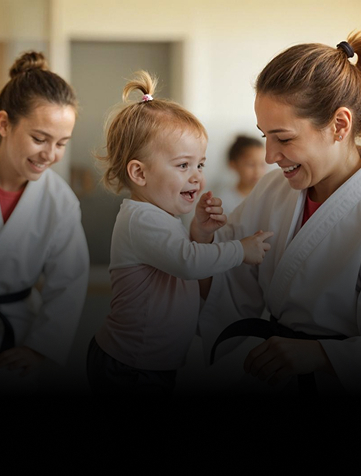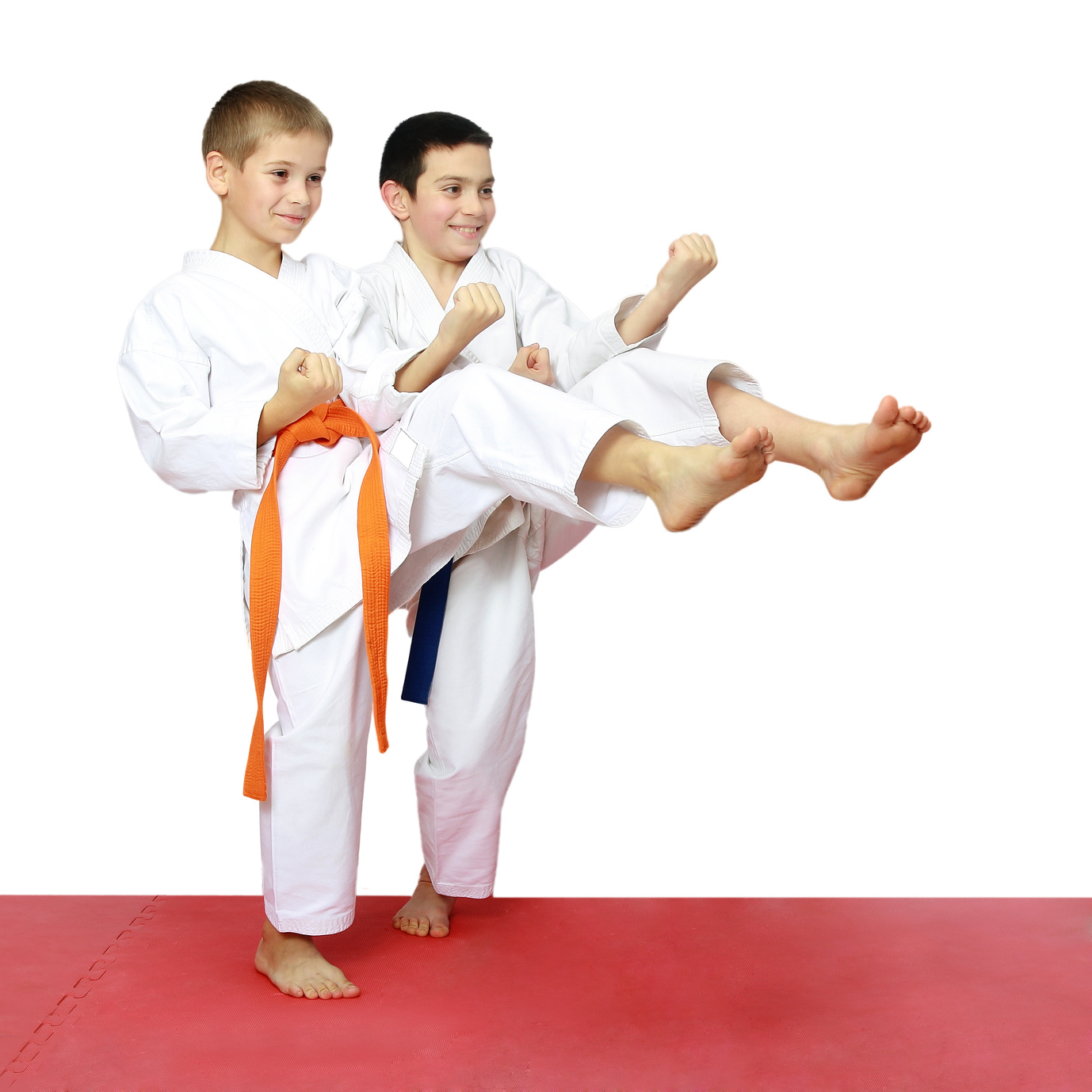Just How Martial Arts for Kids Can Boost Self-confidence and Self-control in Youthful Martial Artists
Karate for youngsters supplies a special possibility to construct self-confidence and self-control in young martial musicians. As they learn brand-new techniques and face difficulties, they not just acquire abilities however additionally create a strong feeling of self-regard. This organized setting urges them to value the journey of renovation. Just how does this training equate into their day-to-day lives? Discover the much deeper links that make karate even more than simply a sporting activity.
The Relevance of Self-confidence in Childhood Years Advancement
Self-confidence is an important building block in childhood advancement. When you support your kid's self-confidence, you equip them to deal with difficulties, take dangers, and express themselves easily. Youngsters with confidence are more going to check out social circumstances and brand-new activities, which can bring about long-term friendships and useful experiences.Encouraging your child to get out of their comfort zone cultivates resilience. They find out that failing isn't the end yet rather a stepping rock to success. By celebrating their accomplishments, regardless of how small, you aid them recognize their abilities and worth.In this trip, support and favorable reinforcement from you play a vital duty. Whether it's via appreciation or merely being existing, your involvement increases their confidence. As they grow, this confidence comes to be a lifelong asset, furnishing them to browse both challenges and chances with a solid feeling of self.
Exactly How Martial Arts Teaches Self-control and Focus
Martial arts assists you construct discipline and emphasis via its structured training regimen. As you exercise mindfulness throughout each session, you'll learn to focus much better both on and off the mat. Plus, setting and achieving goals in martial arts enhances your capacity to stay attentive and committed.
Structured Training Program
While you take part in karate training, you'll rapidly uncover exactly how a structured program instills technique and focus in young practitioners. Each class adheres to a particular format, including workouts, strategy method, and sparring. This consistency educates you to respect the procedure and commit to renovation. As you discover kinds and strategies, you establish a sense of obligation for your very own progress.The structured environment encourages you to set goals, whether grasping a brand-new belt or developing a kata. You'll locate that remaining concentrated during drills and courses hones your focus. The discipline you cultivate in karate prolongs beyond the dojo, favorably impacting your schoolwork and day-to-day regimens. Each session strengthens the value of devotion, aiding you expand into a much more disciplined person.
Mindfulness in Technique
As you practice martial arts, you'll discover that mindfulness becomes a vital part of your training. Each step needs your complete attention, helping you stay concentrated on the present moment. You'll learn to disregard diversions and focus on your breathing, activities, and purposes. This enhanced understanding develops your reflexes and enhances your discipline.During sparring or forms, you'll discover the significance of being psychologically present - Karate Salisbury MD. You'll see just how this emphasis not just enhances your technique but likewise builds your confidence. By practicing mindfulness in martial arts, you cultivate perseverance and durability, important traits that prolong past the dojo. By doing this, martial arts shows you to harness your mind, assisting you establish a self-displined technique to difficulties both on and off the floor covering

Objective Setting Techniques
Setting objectives in martial arts isn't just about gaining belts; it's a powerful means to grow discipline and focus. When you set certain, possible targets, you create a roadmap for your development. For example, rather than simply aiming to boost your kicks, try concentrating on understanding a particular method each month. This strategy keeps you motivated and engaged.Breaking down bigger objectives right into smaller, manageable actions helps you track your progress and celebrate tiny success along the way. Whether it's developing your position or boosting your sparring endurance, every objective strengthens your dedication. As you achieve these objectives, you'll construct confidence in your abilities and develop a strong sense of technique that expands past the dojo into daily life.
Structure Durability Via Martial Arts
Martial arts, particularly martial arts, supplies kids a distinct chance to construct durability in a helpful environment. In classes, they deal with challenges that press their restrictions, whether it's grasping a new strategy or competing with a companion. Each problem, like a missed out on kick or a shed suit, comes to be a chance to learn and grow.As they practice, children discover to welcome pain and maintain trying, even when points get challenging. They find that failing isn't the end; it becomes part of the trip. This state of mind assists them recover stronger, not simply in the dojo, however in everyday life.With each challenge they conquer, your child constructs confidence in their capacity to tackle obstacles, sustaining their determination. Through karate, they'll comprehend that resilience isn't nearly physical stamina; it has to do with mental grit and determination, empowering them to deal with whatever life throws their means.
The Function of Respect in Karate Educating
Regard is a foundational concept in karate training, fostering a society of discipline and sociability amongst students. When you tip onto the dojo floor, you're not just finding out strategies; you're additionally discovering to appreciate your trainers, peers, and the art itself (Karate Salisbury MD). Bowing at the beginning and end of course isn't just a procedure; it signifies your recommendation of others' dedication.as and initiatives you establish shared respect, you'll find it improves your learning experience. You'll pay attention much more diligently to your instructor and gain understandings from fellow trainees. This setting encourages positive objection and assistance, enabling everybody to expand together.Moreover, respect cultivates self-control. Recognizing the value of effort and humbleness helps you stay concentrated on your training. In turn, this regard translates right into your daily life, improving your communications and relationships outside the dojo. Through martial arts, you find out that respect is vital for individual development and neighborhood structure
Setting Goals and Attaining Success in Karate

Social Abilities and Teamwork in the Dojo
While training in the dojo, youngsters naturally create essential social abilities and teamwork capabilities. As they exercise together with peers, they learn to interact properly, share space, and support one an additional. Each course presents opportunities for cooperation, whether it's during partner drills or team workouts. This synergy promotes friendships and develops a sense of belonging, making the dojo a nurturing environment.Kids additionally obtain important conflict resolution here abilities. When they come across obstacles, such as disagreements throughout sparring, they discover to navigate these circumstances constructively. They exercise patience and empathy, recognizing that everybody has various strengths and weaknesses.Moreover, joining group tasks grows a feeling of accountability. You'll see your kid finding out to depend on teammates and take obligation for their role in a group. These experiences not only enhance their martial arts trip but also furnish them with social devices they'll carry right into various other areas of life.

The Long-Term Benefits of Karate Beyond Youth
As youngsters grow up and shift right into adulthood, the advantages of martial arts expand far beyond the dojo. You'll find that the discipline and emphasis discovered via martial arts can translate into your scholastic and professional life. Establishing and achieving objectives in martial arts promotes a solid work principles, which can press you to stand out in any endeavor.Moreover, the confidence acquired from understanding techniques and competing can enhance your self-worth, aiding you tackle obstacles head-on. This durability becomes important as you deal with the unpredictabilities of adulthood.Additionally, the social skills created via teamwork and camaraderie in the dojo can cause better relationships in both individual and specialist spheres. You'll learn to interact properly, willpower conflicts, and construct a helpful network.Ultimately, karate forms not simply skilled martial artists, however all-round people prepared to take on the world.
Frequently Asked Questions
What Age Is Finest to Start Martial Arts for Children?
You can begin karate as early as age 4 or 5, yet it usually depends upon your youngster's maturity and passion. Discovering a course that matches their age and energy level makes a big distinction.
Are There Any Wellness Advantages From Exercising Martial Arts?
Yes, practicing karate deals various wellness advantages. You'll improve your sychronisation, strength, and flexibility while boosting cardiovascular fitness. Plus, it boosts emphasis and psychological wellness, making it a fantastic option for overall physical and psychological wellness.
Exactly How Frequently Should Children Go To Karate Classes?
You ought to motivate your youngsters to attend karate courses at the very least two to 3 times a week. Uniformity helps them learn methods efficiently and create skills, making their experience a lot more delightful and fulfilling over time.
Can Karate Aid With Handling Anxiety in Children?
Yes, martial arts can aid take care of anxiousness in children. It teaches focus and self-control while providing a safe electrical outlet for power. You'll discover your youngster expanding a lot more tranquil and certain as they exercise frequently.
What Equipment Is Needed for Children Beginning Martial Arts?
